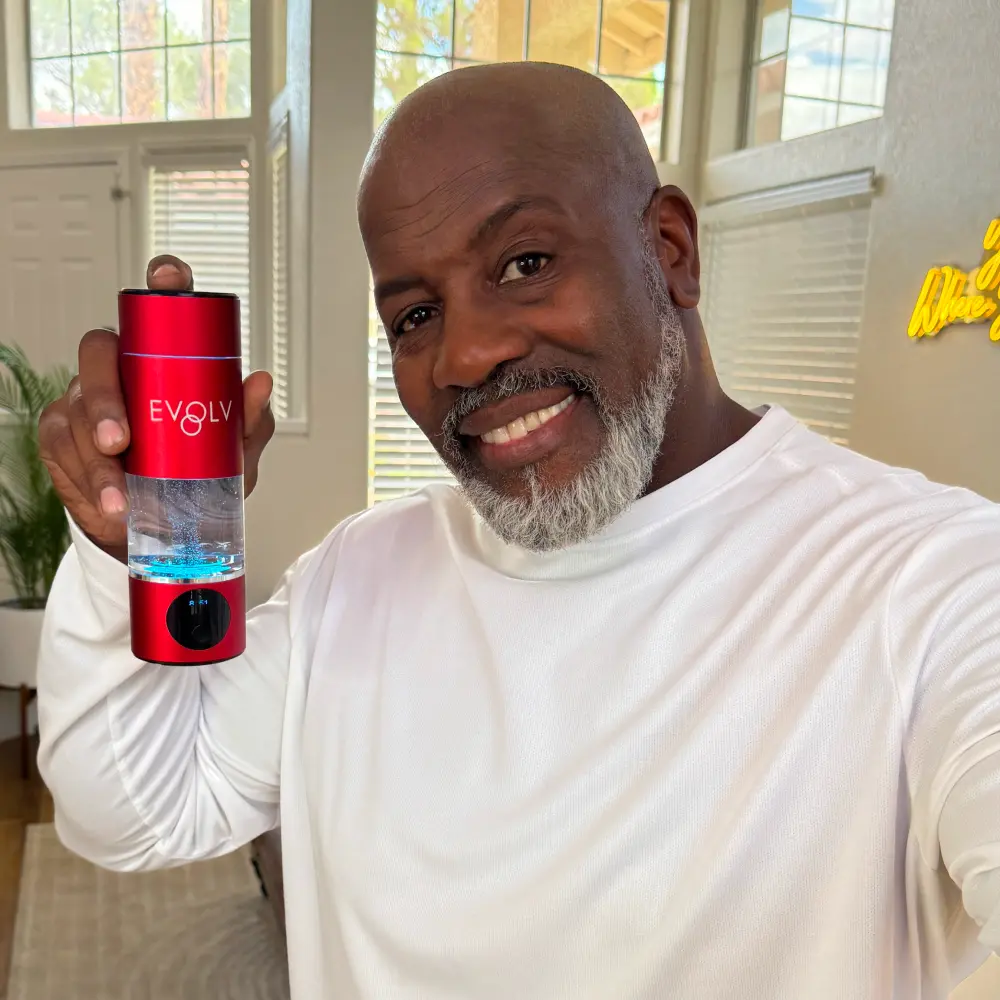
If you’re diving into the world of hydrogen water, you’ve probably come across terms like PPM and PPB. These abbreviations are used to measure hydrogen concentration in water, but what do they actually mean, and why should you care?
Understanding hydrogen water PPM vs PPB is key to making smart choices when buying a hydrogen water bottle, using hydrogen tablets, or evaluating the effectiveness of molecular hydrogen as a wellness supplement. In this blog, we break down what these measurements mean, how they impact your health, and how to choose the right H₂ levels in water for your needs.
What Do PPM and PPB Stand For?
Let’s start with the basics:
PPM = Parts Per Million
PPB = Parts Per Billion
These are units of concentration. When it comes to hydrogen-rich water, they describe how much molecular hydrogen (H₂) is dissolved in a given amount of water.
To visualize it simply:
1 PPM = 1 milligram of hydrogen per liter of water
1 PPB = 1 microgram of hydrogen per liter of water
So, 1 PPM is 1,000 times more concentrated than 1 PPB.
Why Does Hydrogen Concentration Matter?
The concentration of molecular hydrogen in your water directly affects its potential benefits. Higher H₂ levels typically mean a stronger antioxidant effect, greater cellular protection, and more noticeable improvements in energy, inflammation, and recovery.
Clinical research suggests that the therapeutic range for hydrogen water begins at 0.5 PPM, with benefits observed up to 4.0 PPM or more depending on the delivery method (Nakao et al., 2010). In contrast, PPB levels may be too low to produce meaningful physiological effects in the body.
So, if your hydrogen water only contains 200–500 PPB, you're receiving a significantly lower concentration than a 2.0–3.0 PPM bottle, and you may not experience the same results.
Hydrogen Water PPM vs PPB in Real Life
Here’s how the numbers usually stack up in common consumer products:
| Product Type | Typical H₂ Concentration | Measurement Unit |
|---|---|---|
| Store-bought hydrogen water | 0.3 – 0.8 PPM | PPM |
| Low-end hydrogen bottles | 0.5 – 1.0 PPM | PPM |
| High-end PEM hydrogen bottles | 2.0 – 3.5 PPM | PPM |
| Hydrogen tablets (fresh mixed) | 8.0 – 10.0 PPM (short window) | PPM |
| Poorly stored bottled water | 100 – 500 PPB (or lower) | PPB |
As you can see, PPB hydrogen water is often the result of poor storage, long shelf life, or lack of advanced technology. If your goal is to experience real hydrogen water benefits, aim for higher PPM levels generated fresh at the time of consumption.
What’s the Best PPM for Hydrogen Water?
There’s no one-size-fits-all answer, but most hydrogen therapy studies suggest that benefits begin at 0.5 PPM and increase with higher concentrations (Ichihara et al., 2015). For general wellness, a range of 1.0 to 2.0 PPM is ideal for daily use.
Athletes, individuals with chronic inflammation, or people undergoing oxidative stress may benefit from levels above 2.5 PPM. Hydrogen tablets, when used correctly, can deliver ultra-high concentrations, sometimes reaching 8 to 10 PPM, for a brief period after mixing.
Key takeaway: The higher the PPM in your hydrogen water, the more molecular hydrogen your body can absorb, especially if consumed immediately after it's generated.
Is More Always Better?
You might be wondering, “If more hydrogen is better, should I always aim for the highest PPM possible?” Not necessarily.
While higher H₂ concentrations deliver stronger antioxidant and anti-inflammatory effects, the body tends to use what it needs and excretes the rest. Drinking hydrogen-rich water in the 2–3 PPM range daily is generally enough for long-term health support (Ohta, 2014).
Also, higher PPM water must be consumed immediately after generation, since hydrogen gas escapes rapidly from water, especially at room temperature or when left in open containers. That’s why fresh-made hydrogen water (from bottles or tablets) is always more effective than pre-packaged hydrogen water that may lose potency over time.
How to Measure Hydrogen in Your Water
To know exactly how much hydrogen gas you're getting, use H₂ concentration test kits. These often include titration reagents or electronic testers that provide an accurate PPM reading.
Some high-end hydrogen water bottles now come with built-in displays showing real-time PPM levels during or after the electrolysis cycle.
If you're serious about optimizing your intake, choose devices or tablets that guarantee at least 1.5–3.0 PPM, and make sure you drink it fresh within minutes of production.
Final Thoughts: Why PPM > PPB for Real Results
Understanding hydrogen water PPM vs PPB gives you the power to make better wellness choices. PPM means you're receiving a therapeutic dose of molecular hydrogen, enough to support cellular health, fight oxidative stress, and promote hydration in a measurable way.
PPB, while technically valid as a measurement, usually signals a weaker product or one that's been stored too long. For real health results, PPM is what counts.
So the next time you shop for hydrogen tablets, hydrogen water bottles, or pre-filled H₂ water, check the label, or better yet, test it yourself. Your body deserves the full power of fresh, concentrated hydrogen-rich water.
References
Nakao A, Toyoda Y, Sharma P, Evans M, Guthrie N. Effectiveness of hydrogen rich water on antioxidant status of subjects with potential metabolic syndrome – an open label pilot study. J Clin Biochem Nutr. Link
Ichihara M, Sobue S, Ito M, Ito M, Hirayama M, Ohno K. Beneficial biological effects and the underlying mechanisms of molecular hydrogen - comprehensive review of 321 original articles. Med Gas Res. Link
Ohta S. Molecular hydrogen as a preventive and therapeutic medical gas: initiation, development and potential of hydrogen medicine. Pharmacol Ther. Link









